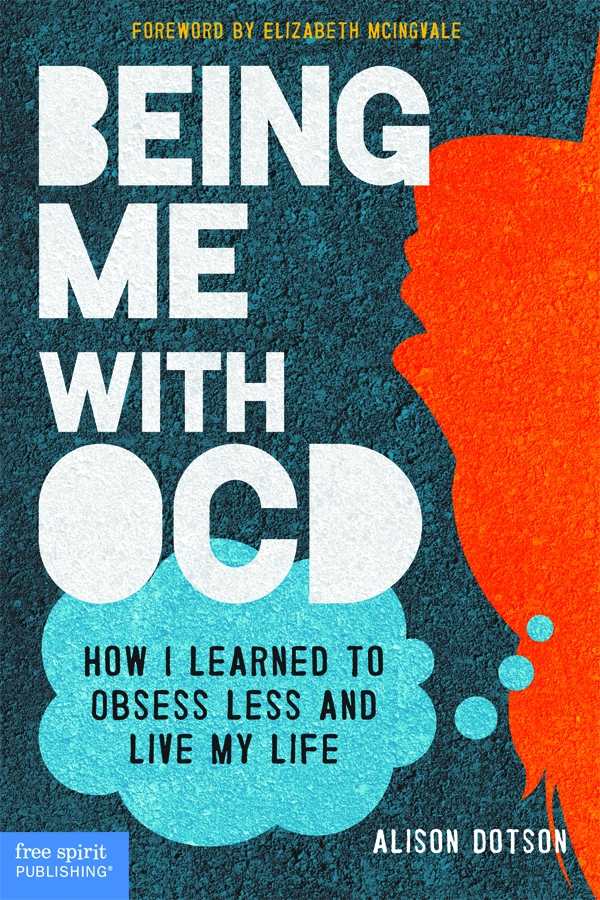Being Me with OCD
How I Learned to Obsess Less and Live My Life
This book offers young people a candid, compassionate view of an often-misunderstood problem.
People often joke about obsessive-compulsive disorder (OCD), as if it were little more than a funny quirk. “I’m so OCD!” people say about being generally meticulous or a little worried. But to those who suffer from it, OCD is not a laughing matter. It can inflict serious harm to a person’s ability to engage socially, to live a life free of constant fear, or to realize hopes and dreams. People with OCD frequently have thoughts of suicide and seldom feel part of the “normal” world. In Being Me with OCD, Alison Dotson shares her personal experience with OCD, adds numerous first-person accounts of others with OCD, and offers encouragement to young people facing this difficult disorder.
In Dotson’s case, her difficulties were not demonstrated through the visible compulsive behaviors for which OCD is often known. For her, it is entirely obsession; an idea, often a fear, would affix itself to her mind and wreak havoc on her self-esteem and ability to socialize. For example, as a child she saw a movie about breast cancer and became convinced she had it and would die from it. She spent hours crying and praying, wondering what she’d done to deserve a terminal disease. Fortunately, Dotson didn’t have cancer, and she went on to discover the true nature of her torments during her midtwenties by embarking upon various therapies and taking medications. Though she’s had to endure—and often correct—other people’s misunderstanding of what she goes through, she is now a happy person, a person who has OCD but is not ruled by it.
Dotson doesn’t show bias toward one therapy or another; she instead shares information on everything from antidepressants to behavioral therapies and brain surgery, all with equal seriousness and consideration. She also provides a solid look at what it’s like to successfully face OCD without professional help. Throughout the book, Dotson shares inspirational quotes, experiences of other people with OCD, and numerous resources that are available to help.
Young people already face tremendous societal pressures and plenty of misinformation. For those with OCD, it’s all the more challenging to differentiate the fears symptomatic of OCD from the myriad fears faced by just about every young person. The book is written with the young person who is newly diagnosed—or those just curious and concerned—expressly in mind.
Reviewed by
Jason Henninger
Disclosure: This article is not an endorsement, but a review. The publisher of this book provided free copies of the book to have their book reviewed by a professional reviewer. No fee was paid by the publisher for this review. Foreword Reviews only recommends books that we love. Foreword Magazine, Inc. is disclosing this in accordance with the Federal Trade Commission’s 16 CFR, Part 255.

